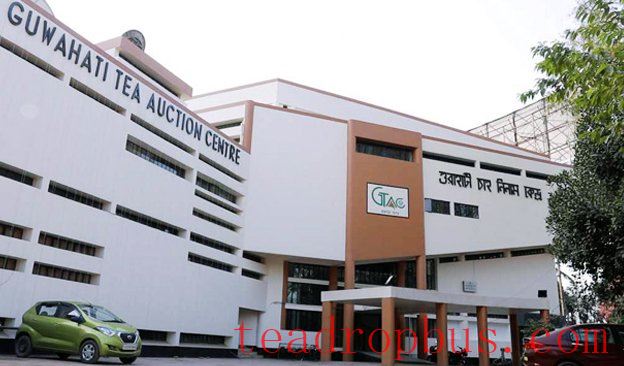
The synergy between AI and blockchain technologies creates a comprehensive system that addresses the main challenges tea auctions face. Photo credit: GTAC.
India’s largest tea-producing state, Assam, is celebrating 200 years of tea production. In tandem with these celebrations, Assam’s finance minister, the state’s first female finance minister, Ajanta Neog, announced an initiative to introduce India’s first AI-driven, blockchain-based tea auction system. This initiative aims to enhance transparency, efficiency, and security in the tea trade, revolutionizing the auctioning process by ensuring fair pricing and tamper-proof transactions for all stakeholders.
Blockchain: Technology-Enabled Transparency
Blockchain technology, widely recognized for its decentralized and transparent nature, modernizes how tea transactions are recorded and verified. Each transaction on the new platform will be encoded in a secure, immutable ledger visible to all stakeholders. This immutable record-keeping ensures that once the information is entered into the system, it cannot be altered retroactively, eliminating opportunities for fraud.
AI: The Unbiased Evaluator
The most groundbreaking aspect of the new system is how it addresses the inherent subjectivity in tea quality evaluation. Traditionally, tea tasting has been an art form, with expert tasters evaluating qualities like brightness, briskness, and character—assessments that inevitably carry personal biases.
The new AI system will analyze tea samples using advanced imaging and spectroscopic techniques, evaluating color, particle size, chemical composition, and other objective quality markers. This technological approach ensures consistency in grading and pricing, providing a more reliable foundation for fair value assessment.
AI and Blockchain Working Together
The synergy between AI-enabled evaluation and blockchain technologies creates a comprehensive system greater than the sum of its parts. While AI provides unbiased quality assessment, blockchain ensures these assessments and subsequent transactions remain transparent and tamper-proof. Together, they address the main challenges that have hindered the modernization of tea auctions.
The system also features smart contracts—self-executing agreements with terms directly written into code—that will automatically validate conditions and execute transactions when criteria are met. This automation reduces administrative overhead, speeds up the settlement process, and minimizes disputes.
“The proposal in the state budget for an AI-driven, blockchain-based tea auctioning system is an excellent initiative, and we welcome this initiative by the government,” said Bidyananda Barkotoky, the North East Tea Association (NETA) advisor.
This year’s Assam state budget also extended the exemption on the green leaf cess for another two years. This cess was introduced in 2022 for three years and it expired on 31 December 2024. Before 2022, a tax of 40 paise ($0.47) per kilogram of green leaf was levied for lands exceeding 40 hectares and 25 paise ($0.29) per kilogram for lands not exceeding 40 hectares. With the extension, this tax will not be levied for two more years.
Bicentennial Gift to Assam's Legacy
The timing of this technological revolution couldn't be more symbolic. As Assam celebrates 200 years since the discovery of indigenous tea plants by Robert Bruce in 1823, this initiative represents a forward-looking tribute to the region's rich tea heritage.
The Guwahati Tea Auction Center (GTAC) started functioning in 1970. The auctions were done manually, and it has come a long way since. In the first year of its operation, the GTAC sold 9.1 million kg of tea at an average price of INR 5.68 ($0.07) per kg. In FY 2024-25, GTAC sold 169.13 million kilograms of tea at an average price of INR 227.70 ($2.67), with a total turnover of INR 3850 crore ($38.5 billion), a whopping INR 800 ($8 billion) crore more than the previous year.
Economic Ripple Effects
The new system will attract more international buyers who previously hesitated due to concerns about transparency. Eliminating intermediaries could also potentially improve margins for producers. Additionally, the initiative aligns with India’s broader digital economy goals, positioning Assam as an innovation leader in agricultural commodities trading.
As this system moves from budget proposal to implementation, it represents not just a technological upgrade but a profound vote of confidence in the enduring value of Assam's most famous export. By bringing age-old traditions into harmony with cutting-edge technology, Assam is creating a future where its celebrated tea can thrive in a digital economy while maintaining its authentic character and heritage.